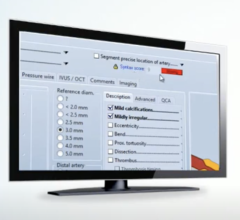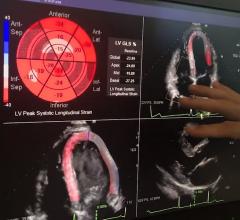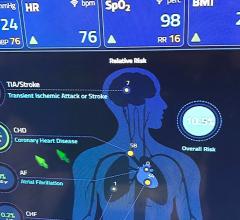December 29, 2009 - The American College of Cardiology (ACC) today said it filed a complaint against the Department of Health and Human Services (HHS) Secretary Kathleen Sebelius, in United States District Court.
The complaint alleges that Secretary Sebelius, in her capacity as the HHS secretary, unlawfully adopted the payment rates for cardiology services in the 2010 Medicare Physician Fee Schedule (PFS) by using an invalid Physician Practice Information Survey (PPIS) in a manner that threatens access to care for patients and precipitously increases medical care costs.
The complaint alleges that Secretary Sebelius and the Centers for Medicare and Medicaid Services (CMS) abused their discretion and acted arbitrarily and capriciously in violation of the Medicare statute and the Administrative Procedures Act by using the invalid PPIS in adopting the payment rates for cardiology services in the PFS. According to the complaint, clear and critical defects exist with respect to the methodology and data used to develop the PPIS, which was used to justify the cuts to Medicare reimbursement rates for cardiology, and which directly undermine the viability of community practices. These include, among other flaws, CMS’s decision to use information from only 55 cardiologists to set reimbursement under Medicare for all of the cardiologists in the entire nation, when the results from that very small group were widely different from more reliable information that was available.
The ACC filed this lawsuit today with the hope of enjoining the implementation of the PFS for cardiology based on this flawed survey data, and to require CMS to use more reliable, available data or conduct a new survey to determine a new 2010 PFS for cardiology services performed consistent with the law.
“The process by which Medicare determined the reimbursement rates was deeply flawed. As a result, the 2010 Rule will levy cuts to cardiologist services by up to 40 percent and will deny critical cardiovascular care for millions of heart patients,” said Jack Lewin, M.D., CEO of the ACC. “The ACC is committed to stopping these cuts and reversing the 2010 rule. Over the past decade, there has been a 30 percent reduction in death and disability related to cardiovascular disease. These cuts will significantly roll back these gains. We still remain hopeful that President Obama, Congress or Secretary Sebelius will step forward to halt this rule.”
The complaint alleges that the number of PPIS responses used to determine the PFS Rule was too small to be representative and that the survey results were not in compliance with the federal regulations which govern precision standards, transparency and review. The complaint also alleges that the consultant group hired by HHS to analyze comments on the proposed rule noted to HHS that the PPIS data used to determine the PFS cuts were counter to all other widely recognized cost measures. According to the complaint, the consultant group concluded that supplemental survey data provided by specialty physician groups, such as the ACC, was more representative of the true cardiology practice than the PPIS data used to determine the PFS Rule.
According to ACC data, the reimbursement cut will result in three-fourths of the nation’s private cardiovascular practices cutting services and eliminating thousands of current staff. There has already been a mass migration of cardiologists from private community practice to direct employment by hospitals, increasing costs and threatening access for millions of patients. As a result of their data, ACC concludes that with fewer cardiology practices and reduced staff, a majority of patients will have no choice but to go to the hospital-based setting to receive routine medical services in addition to critical life saving care.
“These cuts will devastate patient access to care,” said Alfred A. Bove, M.D, president of the ACC. “Already practices are closing their doors and their patients have nowhere to turn. Hospitals do not have the capacity or the specialized ability to absorb the influx of patients. Tests will be delayed, diseases will worsen and patients will become sicker and sicker. Many patients, especially those living in rural settings and urban centers will lose their access to critical cardiac care.”
The complaint was filed in the United States District Court for the Southern District of Florida. Co-plaintiffs include the American College of Cardiology, Florida Chapter; American Society of Nuclear Cardiology; the Association of Black Cardiologists; and the Cardiology Advocacy Alliance.
For the past six months, the nation’s 37,000 cardiovascular specialists have worked diligently to inform members of Congress and the administration about the dangers of this proposed rule. To date, approximately 120 members of Congress have written letters to Sebelius asking for clarification and intervention. Since July 1, 2009, ACC members have sent more than 19,000 communications to members of Congress and have attended more than 400 meetings on Capitol Hill.
In November, after the cuts were announced, the ACC launched the Campaign for Patient Access (www.campaignforpatientaccess.org), a nation-wide grassroots campaign to raise awareness of the issue. Last week, Rep. Charlie Gonzalez (D-Texas) introduced a bill with 55 bipartisan original co-sponsors to freeze cuts at the 2009 reimbursement levels. Senator Bill Nelson (D-Fla.) is currently leading a sign-on letter regarding the cuts in the Senate.
“We’ve been hearing a lot of talk coming from Washington about reforming the nation’s healthcare system because we need to lower costs and increase access,” said Lewin. “That’s absolutely right, but with this flawed rule about to take effect, cardiology is likely to get more expensive and less inclusive. That’s why the ACC is continuing to exhaust every legal, legislative and regulatory avenue available on behalf of our 37,000 members and the patients they serve.”
For more information: www.acc.org


 November 06, 2025
November 06, 2025 









